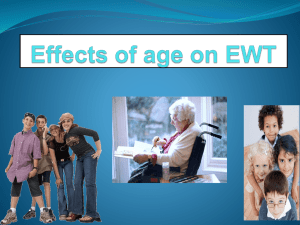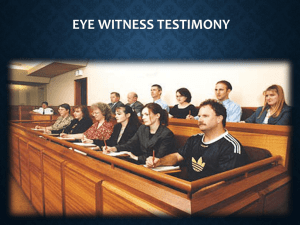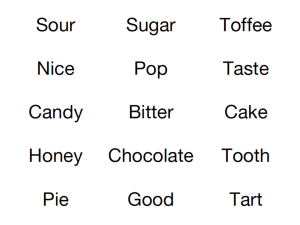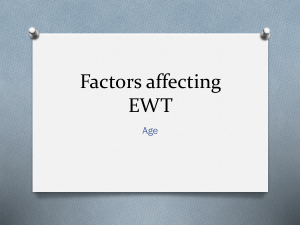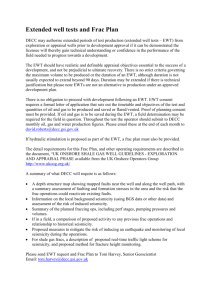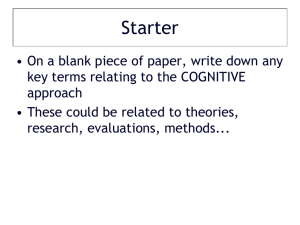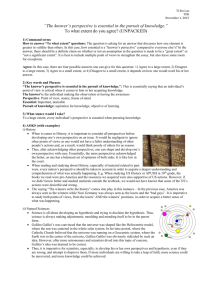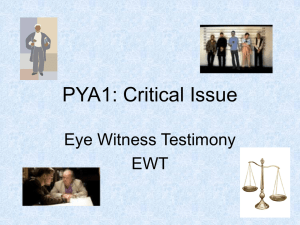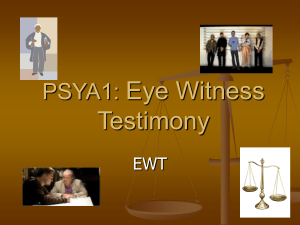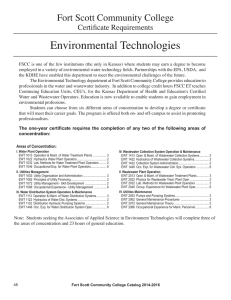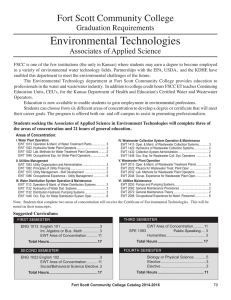EWT-age - WordPress.com
advertisement
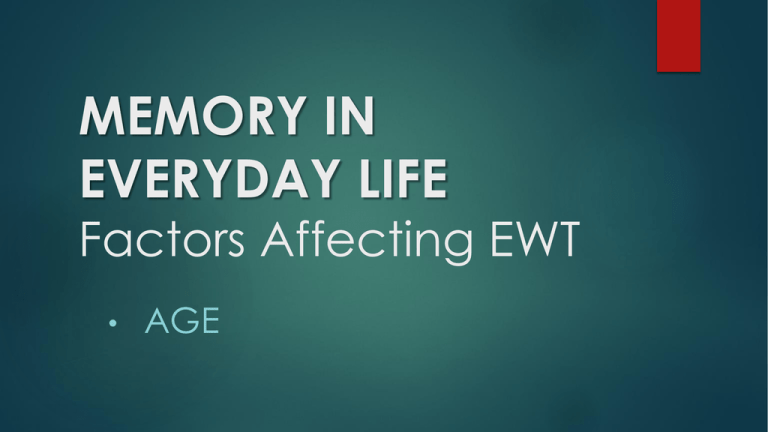
MEMORY IN EVERYDAY LIFE Factors Affecting EWT • AGE STARTER - RECAP Complete the gap-fill on the studies from last weeks lesson How can we interpret this in terms of anxiety and EWT? Learning Objectives To describe research into the effect of age on accuracy of eye witness testimony To evaluate research into the effect of age on accuracy of eye witness testimony To apply lesson knowledge to answer a past exam question Anastasi and Rhodes (2006) – Own Age Bias 3 participant groups – young, middle and older – what is the experimental design??? Shown 24 photos of people representing all 3 age groups Then had a distraction task Then shown 48 photos – 24 (the ones they’d seen) 24 new faces Participants had to correctly identify the faces they’d seen Anastasi and Rhodes (2006) – Own Age Bias What does this study tell us about age and EWT? Anastasi and Rhodes (2006) – Own Age Bias Evaluation Strengths – Weaknesses – Think about the experimental method used and the setting – good and bad points to this Think about applying to EWT – is it an effective test of this? Is it useful? BUT…. Yarmey (1993) – see cognitive booklet Found that there was no significant difference between someone's age and their ability to recall the physical characteristics of a person they had met earlier Write some evaluative points to Yarmey’s research in your booklets – again, think about how the experiment can relate to EWT in real-life Your Task Complete the rest of the section in your booklet using the textbook (Page 102) – looking at children and accuracy of EWT EXTENSION – EXAM QUESTION 1. Plan an answer to the following question: “Outline and evaluate research into the effect of age on EWT” (12 marks) 2. Start writing the answer! Ceci and Bruck – Children as witnesses Interviewer bias – leading questions, want to get the child to confirm their own thoughts Repeated questions – children change answer second time Stereotype induction – assume negative things about someone they have previously heard bad stuff about Encouragement to imaging – if think to hard they will imagine things that didn’t happen Peer pressure – information from others Authority figures – desire to please detectives Kent and Yuille (1987) Found that 9 years olds were more likely than 14 year olds to pick someone from a line-up even though the person they had seen earlier wasn’t actually there Learning Objectives All of you will be able to: - Describe research into the effect of age on accuracy of eye witness testimony - Evaluate research into the effect of age on accuracy of eye witness testimony Some of you will be able to: - Apply lesson knowledge to answer a past exam question
